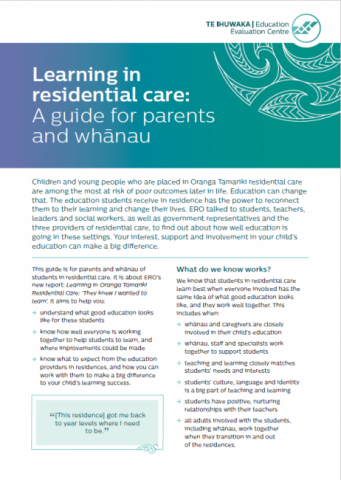Learners contribute to curriculum design
Published: 04 Sep 2017
Engaging in multiple strategies to elicit and respond to student voice ensures that students have direct input into curriculum design.
- Audience:
- Education
- Parents
- Schools
- Content type:
- Research
- Topics:
- Improvement
- Curriculum
- Teaching
- Evaluation indicators
- Video
- Improvement in Action Te Ahu Whakamua








